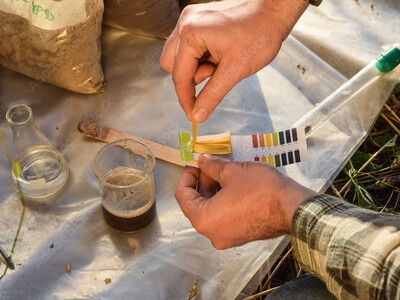Weed Pressure
New University of Idaho research raises the possibility that exposing a crop cultivar to several generations of heavy weed pressure may be an effective way to breed more resilient varieties.Albert Kwarteng, a doctoral student in the Department of Plant Sciences who is leading the study for his dissertation, and his advisor, UI Extension weed scientist Albert Adjesiwor, have been saving and replanting repeated generations of spring wheat seed derived from parent plants raised in a weedy environment.
Spring wheat plants in the experiment have adapted to the stress over time. The researchers anticipate the project will clarify some mechanisms plants use to cope with stress from weeds, thereby helping wheat breeders.
“In the insect world, if you expose plants to pests, subsequent generations are more tolerant to pests,” Adjesiwor said. “This has been done in the entomology world for a while now. For weed science, we don’t know what happens to the progeny if you expose wheat or dry beans or sugar beets to weeds for multiple generations.”
Improved performance they’ve already noticed could be the result of a gene related to weed competition or a hormone produced by the wheat plants to aid in their self-defense.
It’s most likely, however, according to the researchers, that the response is an epigenetic mechanism, meaning that over time and after generations of exposure to a common stressor, plants and animals can develop a “stress memory” to help themselves cope that isn’t recorded in their DNA.













